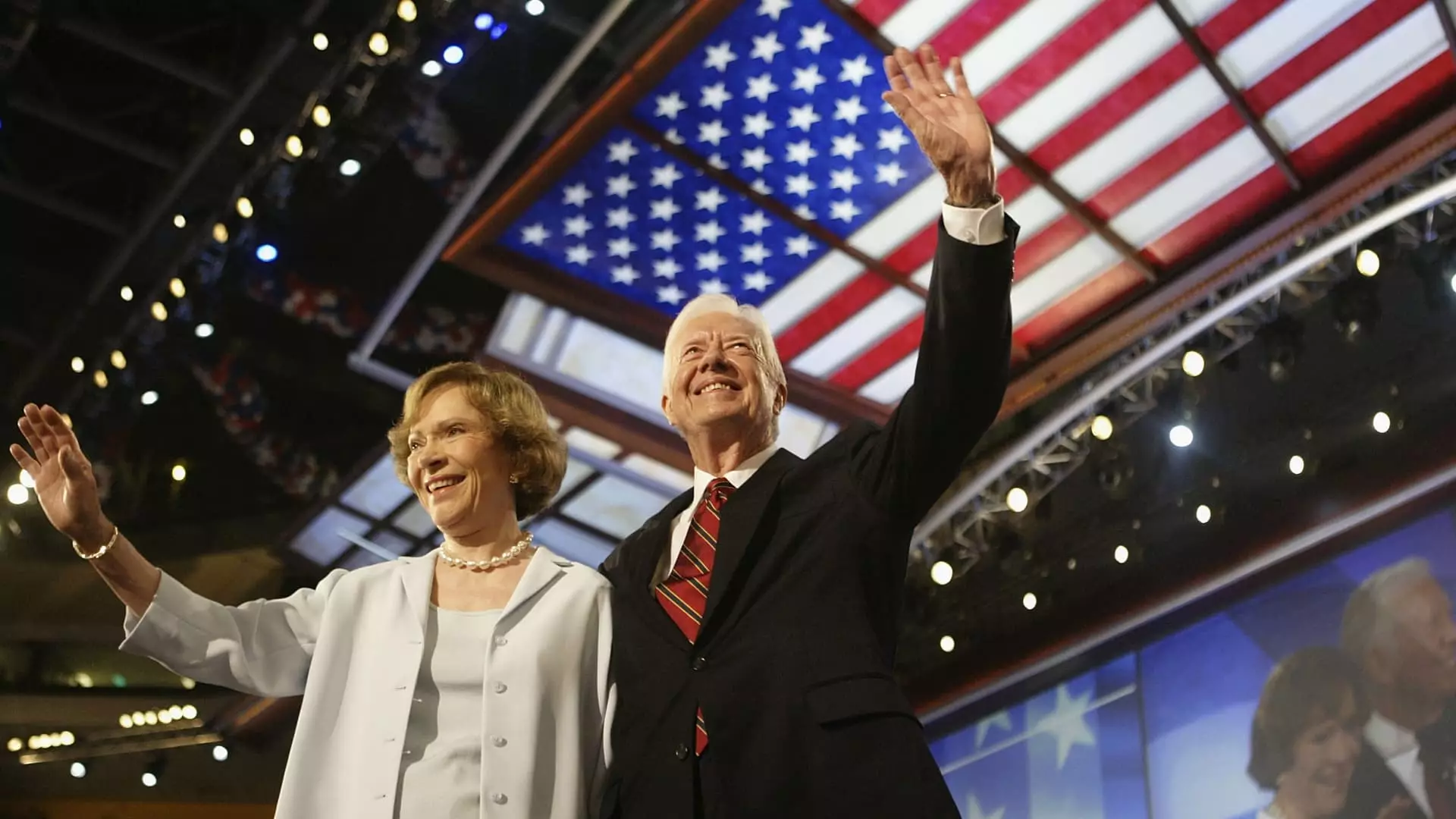The passing of former President Jimmy Carter on Sunday has prompted an outpouring of tributes from politicians across the United States, reflecting the near-universal respect for the 39th president’s contributions both in and out of the Oval Office. As the nation mourns, leaders from both major political parties have taken to social media and official statements to recognize Carter’s indelible impact, a testament to his remarkable life dedicated to service.
Senate Majority Leader Chuck Schumer (D-N.Y.) highlighted a central theme in Carter’s presidency: the emphasis on humility and service over grandstanding and personal gains. Schumer articulated that Carter’s enduring legacy lies in his belief that the true measure of leadership is found in actions rather than words. In an era where political rhetoric frequently overrides substantive deeds, Carter serves as a poignant reminder that genuine leadership is marked by compassion and a sincere commitment to improving the lives of others.
Mitch McConnell, the outgoing Senate Minority Leader (R-Ky.), reinforced this sentiment, drawing parallels between Carter’s agricultural roots and his character. He metaphorically linked the “fruits of all-American soil” both to Carter’s upbringing and his life’s work. This imagery of farming not only reflects Carter’s own background as a peanut farmer but also emphasizes the hard work and dedication he poured into both public service and his community efforts throughout his life.
Bridges Across the Aisle
Equally notable is the bipartisan camaraderie demonstrated in the aftermath of Carter’s death. Former Presidents Bill Clinton and Hillary Clinton reflected on their long-standing relationship with the late leader, mentioning their pride in supporting him during his presidential campaign. Bill Clinton’s memories of awarding Carter the Medal of Freedom underscore a mutual respect that transcends political affiliation—an acknowledgment that Carter’s ideals and achievements resonate with people across the spectrum.
Current leaders from both parties have echoed similar sentiments. House Majority Leader Steve Scalise (R-La.) and Democratic Leader Hakeem Jeffries (D-N.Y.) took to social media to laud Carter’s lifetime of service. The unity in their messages emphasizes that regardless of party lines, Carter’s approach to life—characterized by humanitarianism and public service—is a legacy that public figures can strive to emulate.
A Dedication to Human Rights and Community Service
Carter’s commitment to humanitarian efforts post-presidency has also come to the forefront. The establishment of the Carter Center stands as a testament to his enduring dedication to global human rights and the alleviation of suffering. His involvement with Habitat for Humanity is another hallmark of his life beyond politics, showcasing his hands-on approach to helping those in need. Senator Mike Lee (R-Utah) poignantly asserted that Carter’s post-presidential endeavors offered even greater contributions to society than his time in office, highlighting his unique position as a national leader who continued to serve even after leaving the White House.
Carter’s faith has also been a focal point in many tributes. His role as a Sunday school teacher and his undying connection to his faith community in Plains, Georgia, reflect the values that guided his public service: humility, integrity, and a genuine desire to uplift others. Such characteristics resonated widely, prompting Senators like Chuck Grassley (R-Iowa) to recognize the shared values he had with Carter despite their differing political views.
As tributes continue to pour in from across the political landscape, it is evident that Jimmy Carter will be remembered not just as a former president but as a monumental figure in American history. His post-presidency humanitarian efforts redefined what it means to be a public servant in the modern age, emphasizing a life dedicated to helping others. Politicians, colleagues, and citizens alike are left with the enduring question: What can we learn from Carter’s example?
In a world often marred by political divisiveness, Carter’s legacy serves as a beacon of hope—a reminder that service to humanity and commitment to the greater good are ideals worth striving for. As the nation reflects on the life of Jimmy Carter, the emphasis remains on celebrating a man whose actions have left an indelible mark, inspiring current and future generations to prioritize service, kindness, and genuine leadership.


Leave a Reply